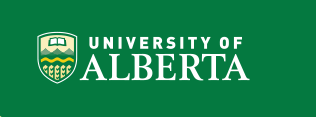143
Faculty Regulations
143.4
Practicum Intervention Policy
143.4 Practicum Intervention Policy
![]() The Dean, or Supervisor acting on behalf of the Dean, may immediately deny assignment of a student to, withdraw a student from, or vary terms, conditions or site of a practicum/clinical placement if the Dean or Supervisor has reasonable grounds to believe that this is necessary in order to protect the Public Interest. Refer to §23.8.2 Practicum Intervention Policy for additional information.
The Dean, or Supervisor acting on behalf of the Dean, may immediately deny assignment of a student to, withdraw a student from, or vary terms, conditions or site of a practicum/clinical placement if the Dean or Supervisor has reasonable grounds to believe that this is necessary in order to protect the Public Interest. Refer to §23.8.2 Practicum Intervention Policy for additional information.
143.4.1 Practicum Policies and Requirements
Registration with Alberta College of Pharmacists The Health Professions Act requires that pharmacy students be registered as students (restricted practitioners) or if holding an undergraduate degree in pharmacy to be on the College’s clinical register in order to practice in the exclusive scope areas of pharmacy to which they are exposed in a clinical placement. All fees and other costs associated with this registration are the responsibility of the student. | |
Police Information Check: Under The Protection for Persons in Care Act, all students going to any placement site in Alberta are required to complete a Police Information Check (also known as a Criminal Record Check, Security Clearance Check, or Police Clearance), which must include a Vulnerable Sector Check. The Faculty requires this check prior to the start of the first experiential learning course. The placement site will determine the criteria for acceptance/denial of a placement.
| |
CPR and First Aid Certification: Students in the Faculty must obtain certification in cardiopulmonary resuscitation (CPR) Level C and a certificate in First Aid (Standard or Emergency First Aid) by the end of March (last business day) of first year for the BScPharm program or prior to clinical placements for the PharmD program. Please note that CPR Level C with First Aid meets the requirements for providing injections. All fees and other costs for CPR/First Aid certification are the responsibility of the student. Students must maintain valid certification for both CPR Level C and First Aid until they graduate. | |
Immunization and Bloodborne Pathogens Policy:
| |
Procedures: The procedures governing practicums and placement are binding and will be provided in a procedures manual. | |
Placement: All required practicums are undertaken at Faculty-approved sites within Alberta. The Faculty of Pharmacy and Pharmaceutical Sciences is committed to a regional placement program in which students are normally required to undertake practicums in centres other than Edmonton.
| |
Site protocols: Students on volunteer or practicum placements are required to follow the administrative procedures and regulations (including dress requirements) of the placement site. | |
Although special services are provided on campus to assist disabled students, these same services may not be available for off-campus placements. |


